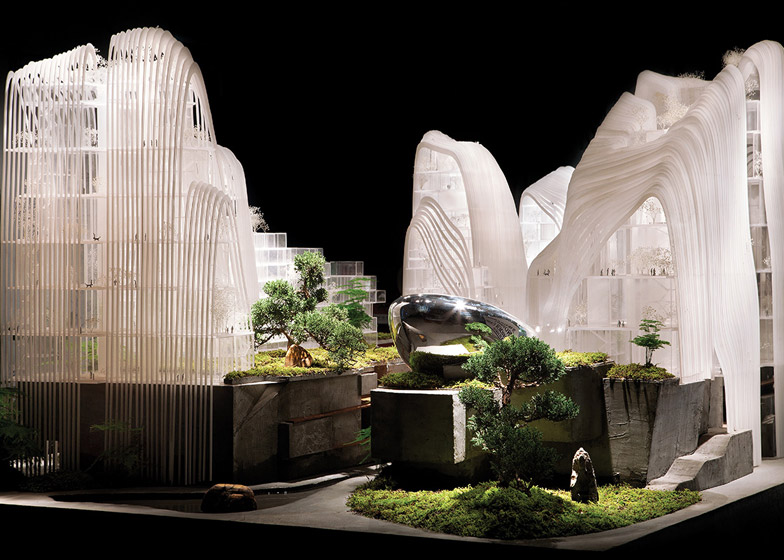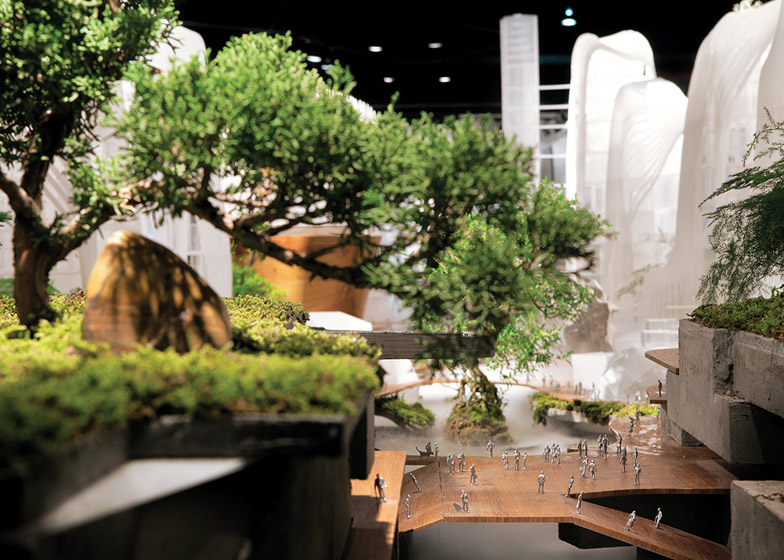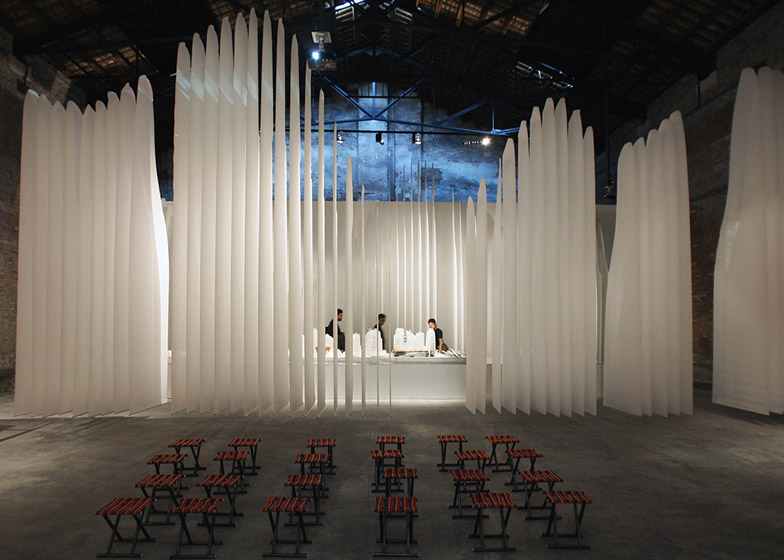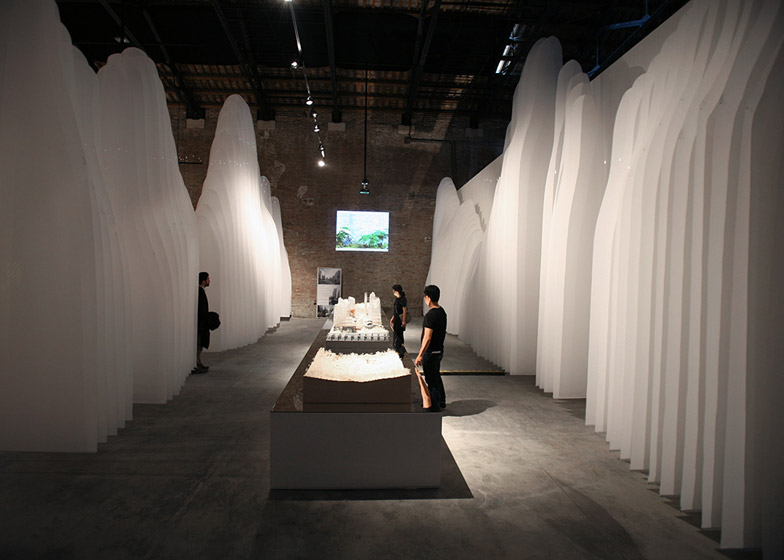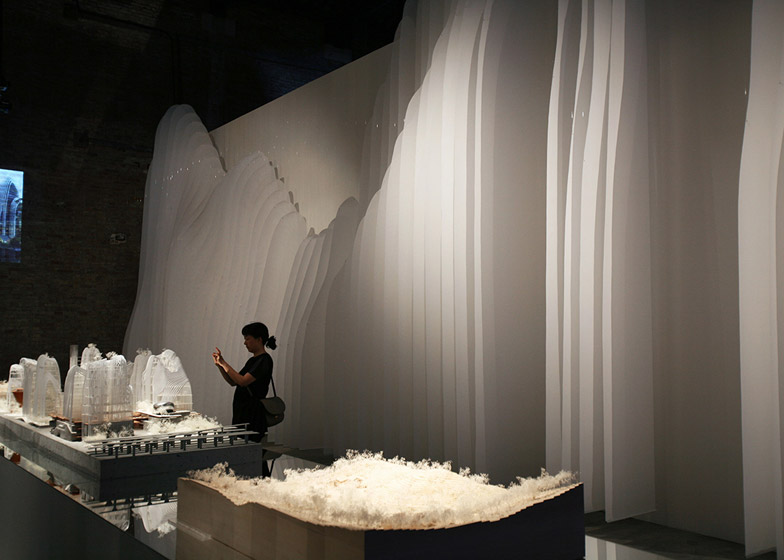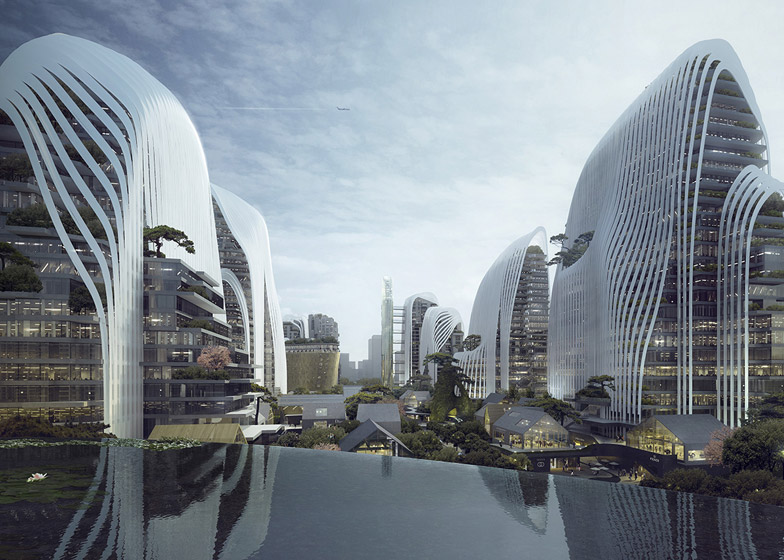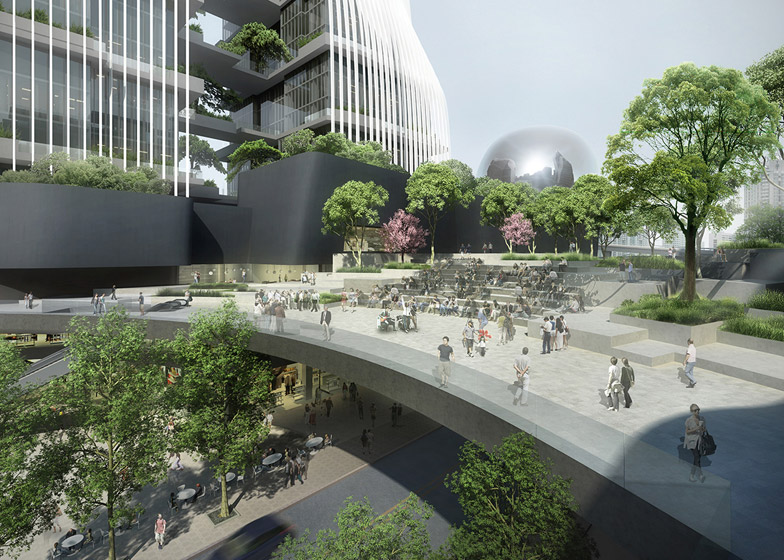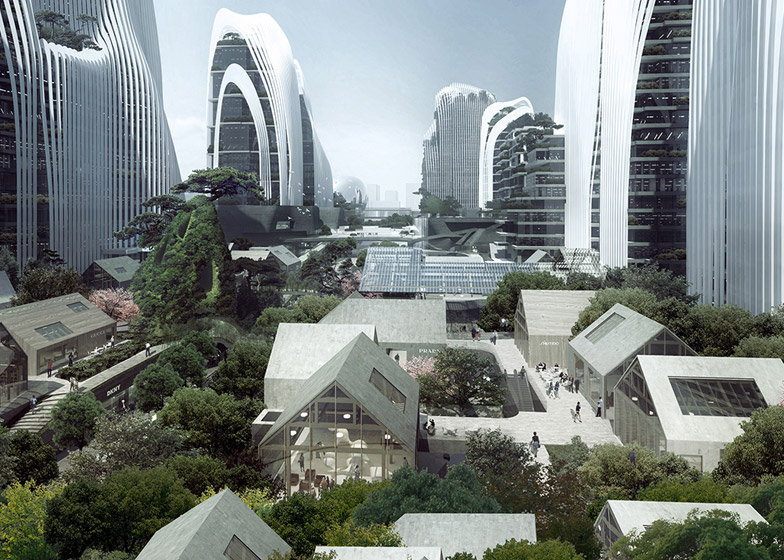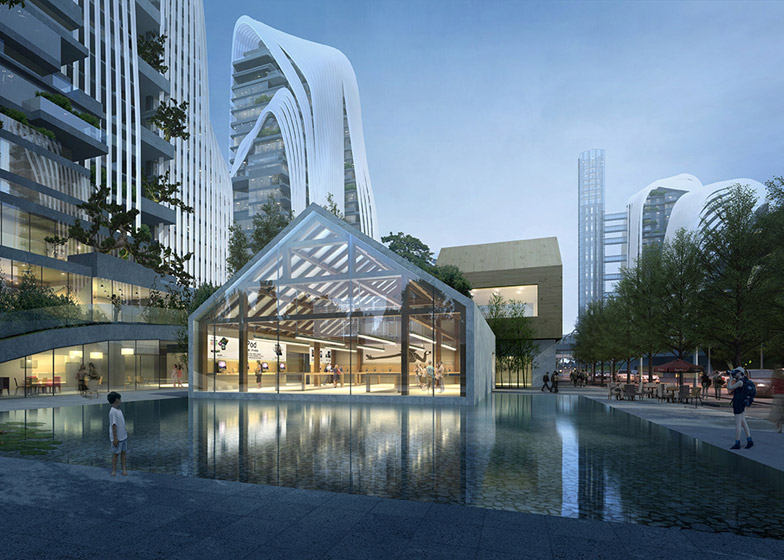Venice Architecture Biennale 2014: rows of curving translucent panels evoking mountains in traditional Chinese paintings surround scale models of MAD's Nanjing Zendai Himalayas Center at this installation in Venice (+ slideshow).
Chinese firm MAD is using the biennale as an opportunity to present its masterplan for the city of Nanjing, which references the combination of mountains, water and meandering pathways found in Chinese shan-shui paintings.
The installation features a series of models placed on plinths with mirrored surfaces and flanked by rows of suspended gauzy panels with an undulating profile reminiscent of the buildings' fluid surfaces.
The architects claimed the project ties in neatly with the theme for the biennale laid out by its curator, Rem Koolhaas: "The title of 14th Venice Architecture Biennale is Fundamentals," the studio explained. "MAD believes the fundamental in architecture is the mutualistic and dialectic relationship between humans and nature."
The masterplan, which is currently under construction and is scheduled for completion in 2017, covers an area of approximately 560,000 square metres.
It will comprise six lots with a cluster of low buildings at the centre connected by footbridges that cross an undulating landscape of manmade hills.
Towers situated around the edges of the site are designed to resemble mountains, with vertical louvres shading windows that create the impression of streaming waterfalls.
A similar installation demonstrating the scheme was shown as part of the Shenzhen and Hong Kong Bi-city Biennale of Urbanism\Architecture last December.
Nanjing Zendai Himalayas Center is intended as a city-scale development of MAD's Shan Shui City concept, which is at the core of the firm's recent work.
MAD recently broke ground on a scheme for a Beijing business district that employs the same ethos and visual language. Models of this concept were presented in the verdant courtyard of Beijing design store Wuhao last year.
The exhibition is on show in the Arsenale Nord. It opens to the public on 7 June and continues until 23 November. See all our coverage of the Venice Architecture Biennale 2014 »
Here's some information from the architects:
MAD Presents Latest Project in the 14th Venice Architecture Biennale
MAD Architects (MAD) presents its latest project, Nanjing Zendai Himalayas Center, at the 14th Venice Architecture Biennale held in Venice, Italy.
The Nanjing Zendai Himalayas Center is a city-scale urban project, with an overall building area of approximately 560,000 sqm. Working at this scale, MAD strives to capture a fully realized "Shanshui City"— a concept at the centre of MAD's designs that adapts the traditional Chinese Shanshui ethos of spiritual harmony between nature and humanity to the modern urban environment.
Built over 2600 years ago, Nanjing is an iconic city with equally rich traditional heritage and high modernisation. With these two motifs in mind, MAD strives to achieve a balance of the city's historic past and its high-tech future. The design of the Zendai Himalayas Center maintains and develops the philosophy of cooperation between humanity and nature, albeit in a modern setting. The carefully planned project seeks to restore harmony between humans and the environment by creating integrated, contemplative spaces that still meet the material needs of modern life.
The site is composed of six lots, two of which are linked by a vertical city plaza. Curving, ascending corridors and paths weave through the undulating commercial complexes, bringing people from the busy ground level to the vertical park for opportunities to wander among the buildings and gardens.
At the centre of the site is a village-like community of low buildings, connected by footbridges and nestled into the landscape. This scene of footbridges, artificial hills and flowing water together creates a poetic moment at the heart of the project. The simplicity of the design concept is further captured through the use of clean construction materials, such as concrete.
On the edge of the site, the mountain-like towers are characterised by vertical sun shading and pervious glass screens that "flow" like waterfalls. These features provide interior spaces with energizing light and wind to form a subtle, calming ambience. The project mimics the site's surrounding mountains and meandering rivers that are essential parts of Chinese aesthetic philosophy. Towers along the edge of the site act as a mountainous backdrop, while water features such as ponds, waterfalls, brooks, and pools connect buildings and landscapes to integrate all of the Centre's elements. This integration goes beyond form, with the water features functioning as reservoirs to collect and recycle rainwater for irrigation.
The title of 14th Venice Architecture Biennale is "Fundamentals." MAD believes the fundamental in architecture is the mutualistic and dialectic relationship between humans and nature. At the Biennale, MAD will present the "Silhouette Shanshui," an artwork that lies between model and installation and is inspired by the Nanjing Zendai Himalayas Center. The work will be open to the public starting from June 7th.
The Nanjing Zendai Himalayas Center project is currently under construction, and is estimated to be completed in 2017.

